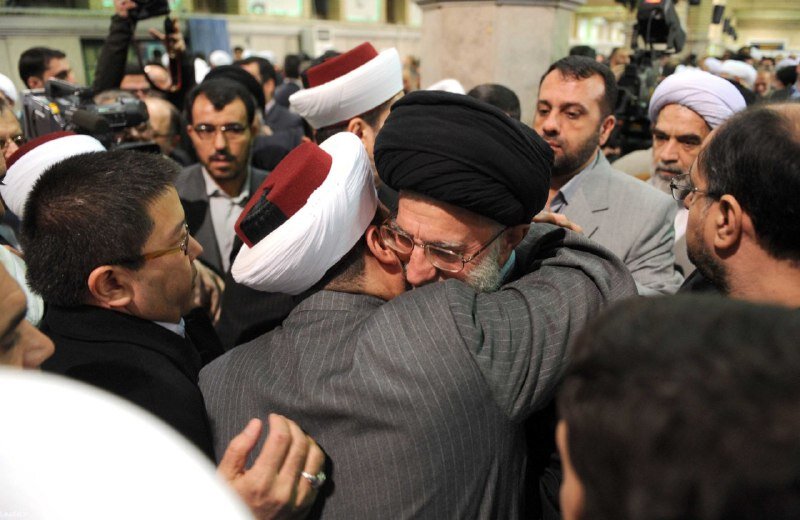Blueprint for a stronger region
Why Ayatollah Khamenei mentioned Egypt, Saudi Arabia and Jordan in pushing for regional unity?

TEHRAN – With the West Asia region moving toward broader de-escalation, Iran appears to be sensing an opportunity for Muslim solidarity in the face of foreign interlopers.
In his recent speech delivered before a group of Iranian officials, and Muslim ambassadors and luminaries, Ayatollah Seyed Ali Khamenei, the Leader of the Islamic Revolution of Iran, put forth an idea that amounts to a diplomatic initiative.
He implied that the time is ripe for countries of the West Asia region to form a unity that is based on ensuring their sovereignty and fending off foreign meddling and dictates.
Ayatollah Khamenei spoke about the issue of Islamic unity, emphasizing that the unity of Islamic countries in the West Asian and North African regions will prevent theft, coercion, and interference by the U.S. “Today, the U.S. is harming the countries of the region both politically and economically. It is stealing Syria's oil and protecting and safeguarding the cruel, savage, and bloodthirsty Daesh in its camps so it can bring it back out onto the field on the day of need,” he said, according to a readout by khamenei.ir.
He said, “If we all become united and Iran, Iraq, Syria, Lebanon, Saudi Arabia, Egypt, Jordan, and the Persian Gulf countries adopt a single policy in fundamental and general issues, the oppressive powers cannot and will not dare interfere in our internal affairs and our foreign policies.”
The Leader further clarified, “As we have said many times before, we do not encourage war or military action. We avoid it. So, the invitation to come together and unite is to prevent U.S.'s warmongering, since they start wars and all the wars in the region have foreign causes.”
Ayatollah Khamenei’s calls for unity appear to be directed against the interventions of the U.S. and its regional ally Israel as they are the biggest enemies of unity among the countries of the region. He implied that Washington and Tel Aviv feed on regional division and discord, which pave the way for their aggression.
In recent years, Israel and the U.S., through media propaganda, sought to portray Iran as the leading destabilizing force in the region. The Leader’s initiative, however, indicates that Iran is not only a force for good but is also extending its hand for peace and prosperity in the region.
It also indicates that no other countries are as upset at the resumption of Iran’s relations with Arab countries as Israel and the U.S.
Expatiating on his initiative, the Leader called on the leaders of Muslim countries, thinkers, and luminaries in the region to ponder over Iran’s offer.
The Leader’s mentioning of the three key countries of the region – Egypt, Saudi Arabia, and Jordan – as the target countries for the unity initiative is also interesting. The countries in question have all been in the crosshairs of Iran’s de-escalatory efforts, with Saudi Arabia officially restoring ties with Iran and Egypt and Jordan in the process of patching up ties relations with Tehran.
Ayatollah Khamenei has long supported the restoration of Iran’s relations with these countries. When Sultan Haitham of Oman visited Iran recently in a bid to convey a message from the Egyptian leadership regarding the restoration of ties with Iran, the Leader unequivocally said that Iran welcomes such a step.
The idea of advancing unity among the countries of the region, observers say, would bring about enormous benefits for these countries. It will immunize them against foreign meddling. Furthermore, it will obviate the need for normalization with Israel, which the Leader likened to placing a bet on the wrong horse. In general, the Iranian unity initiative could be indicative of a new conciliatory trend in the region aimed at fostering cooperation and prosperity.
Leave a Comment